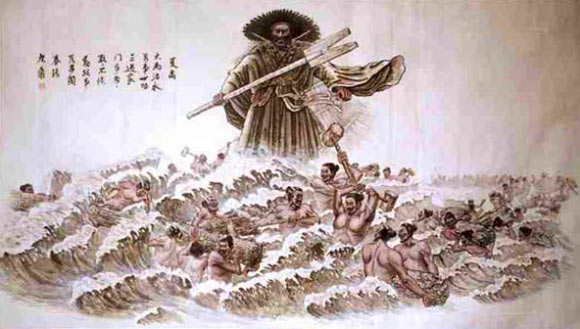The Great Flood of Gun-Yu (Chinese: 鯀禹治水), also known as the Gun-Yu myth, was a major flood event in ancient China that allegedly continued for at least two generations, which resulted in great population displacements among other disasters, such as storms and famine. People left their homes to live on the high hills and mounts, or nest on the trees. According to mythological and historical sources, it is traditionally dated to the third millennium BCE, or about 2300-2200 BCE, during the reign of Emperor Yao.

Treated either historically or mythologically, the story of the Great Flood and the heroic attempts of Emperor Yu and various human characters to control it and to abate the disaster is a narrative fundamental to Chinese Culture. Among other things, the Great Flood of China is key to understanding the history of the founding of both the Xia dynasty and the Zhou dynasty, it is also one of the main flood motifs in Chinese mythology, and it is a major source of allusion in Classical Chinese poetry.
from wikipedia
see also this article about the geological facts behind this and other flood myths.

